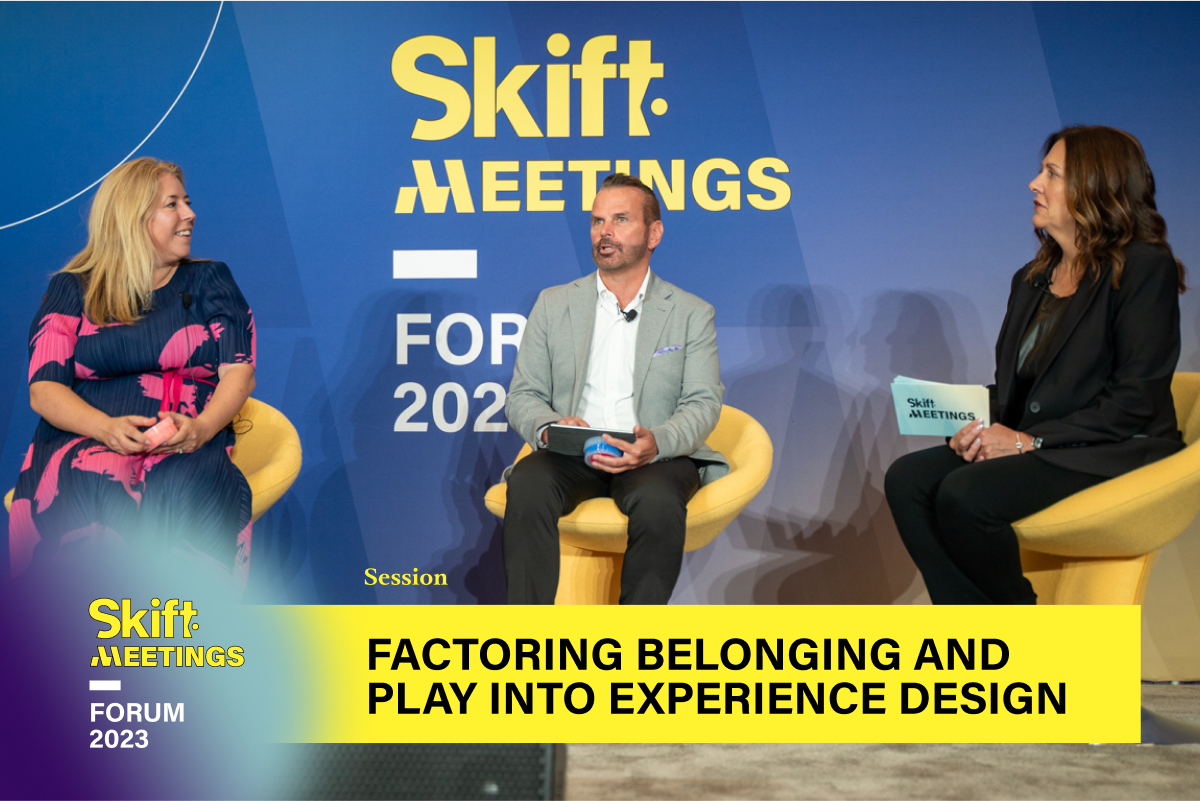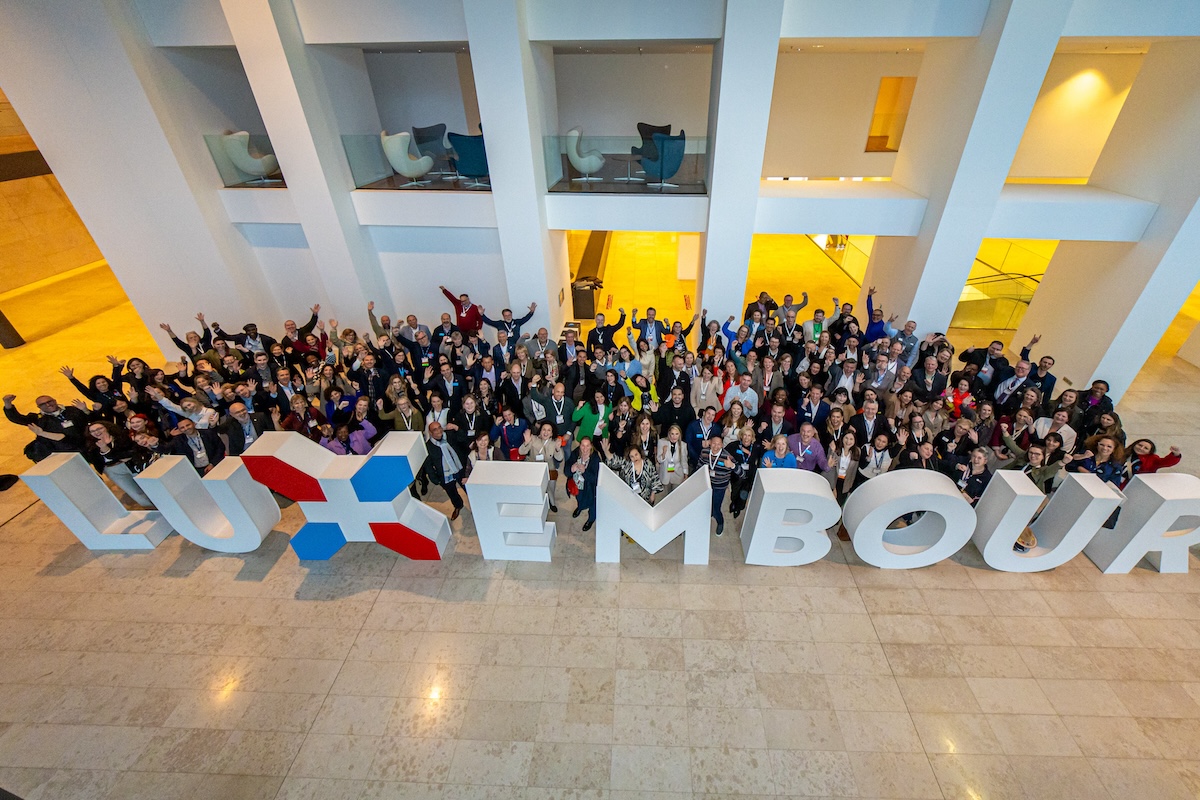Skift Take
In this video from the Skift Meetings Forum 2023, we hear from Glenn Stress, VP of global B2B events and programs for Marriott International, and Naomi Claire Crellin, founder and CEO of StoryCraft Labs, about how their six guiding principles for experience design in the meetings and events industry can help planners cut through the clutter to design more inclusive, immersive and playful events.
This content was created collaboratively by Marriott Bonvoy and Skift’s branded content studio, SkiftX.
In this video:
- How the “power of play” can foster innovation, imagination, and cognitive functions among attendees. According to Crellin, “when we’re playing, we’re thinking about ‘what if?’ We’re imagining. We’re thinking about possibility and potential, and putting challenges and constraints to one side.” Play is also a kinesthetic activity that can soothe us, focus our thoughts, and create fun, laughter, and eye contact. As well as helping us learn and promote innovative thinking, the other applications of play in event design might be assessing our content programming, improving content ROI, and reimagining traditional methods of delivering our content.
- The importance of belonging-centered design and “neuroinclusion.” Alongside play, “designing for belonging” is another of the six principles identified by Stress and Crellin. Stress says “inclusion is important because when people can show up as their authentic self, they’re much more engaged as an attendee.” Marriott has collaborated with Google’s Experience Institute (Google Xi) by using their checklist and guide, The Neu Project, to improve inclusivity in meetings and events for those with cognitive differences and neurodiversity. The creation of “quiet rooms” at large events offer individuals a place to decompress — a benefit not only for the neurodiverse, but for everybody else in need of a space to pause and reflect. This is an example of the “curb cut effect”: When you design for inclusion, everyone benefits.
- How to bring these experience design principles into the real world. Crellin has launched immersive labs in the U.S., Europe and across Latin America, including in Bogota, Buenos Aires, São Paulo, and Panama, to activate these guiding principles and see how they might apply in practice. They plan to use the ideas generated in the labs to create shared industry benchmarks for a final report due to come out in 2024. Those interested in answering questions such as “how can I design belonging into my experience journey?”, “what does belonging mean to me?”, and “how can I architect choice for my audience?” can get involved with the study now.
When do planners consider play — if at all — when designing meetings and events? The “power of play” is one of the surprising experience design principles identified by a new report created by Marriott in partnership with PCMA and CEMA titled Guiding Principles in Experience Design. Based on 60 in-person interviews resulting in 2,000 data points and global roundtables, the report puts forward six design principles or “truths” to help you create your next meeting: exploring identities, architecting choice, designing for belonging, value of values, emotional data, and power of play. To learn more about these six truths, visit marriottbonvoyevents.com.
In this video from the Skift Meetings Forum 2023, Glenn Stress, VP of global B2B events and programs for Marriott International, and Naomi Clare Crellin, founder and CEO of Storycraft Lab, talk to Skift Meetings Executive Editor, Andrea Doyle, about why you should consider play as a key experience design tool, the importance of neuroinclusion, and the questions to ask yourself when designing your next meeting or event.
This content was created collaboratively by Marriott Bonvoy and Skift’s branded content studio, SkiftX.






